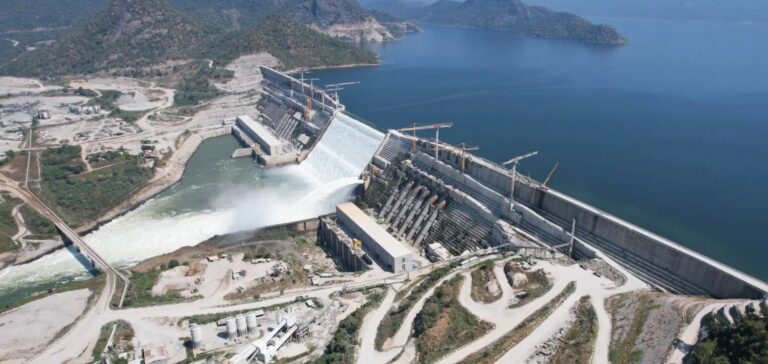Ethiopia is strengthening its position as an energy driver in East Africa by developing hydropower infrastructure and expanding cross-border connections. According to Ethiopian Electric Power (EEP), the country aims to increase national electricity access from 54% to 78% within the next five years, with the Abbay Dam as its flagship project.
A central project for national industrialisation
The Abbay Dam, a cornerstone of Ethiopia’s energy strategy, is part of a broader industrialisation plan. It aims to meet growing domestic demand while generating surplus electricity for export. The use of this hydroelectric potential is expected to reduce reliance on fossil fuels and support national economic development.
EEP Site Manager Tewodros Ayalew stated that “Ethiopia is ready to export its surplus electricity to Sudan, Kenya, Djibouti, and Tanzania,” noting that the initiative would strengthen regional ties and stimulate shared economic growth.
Towards an interconnected power grid
The Ethiopian initiative aligns with a longstanding regional effort. John Mativo, Managing Director of Kenya Electricity Transmission Company (KETRACO), recalled that countries in the region had agreed as early as 2010 on the need for an interconnected power network to facilitate energy exchange. He emphasised that the implementation of cross-border infrastructure is a key step in this strategy.
KETRACO Regional Engineer Victor Sambula Inganga highlighted that the transmission line between Ethiopia and Kenya delivers stable electricity, easily integrated into the Kenyan grid through an alternating current (AC) conversion system. He added that this technical interoperability reduces voltage loss and improves compatibility.
Multilateral financial support
Cross-border energy networks are receiving funding from African development banks. This interconnection enables a diversified energy mix, such as hydropower from Ethiopia and geothermal energy from Kenya. The model aims to ensure long-term energy security and regional stability.
According to Tewodros Ayalew, regional integration reduces energy losses and infrastructure costs by promoting shared use of existing capacity. Through its electrical expansion, Ethiopia is positioning itself as a key player in harmonising energy systems across East Africa.






















